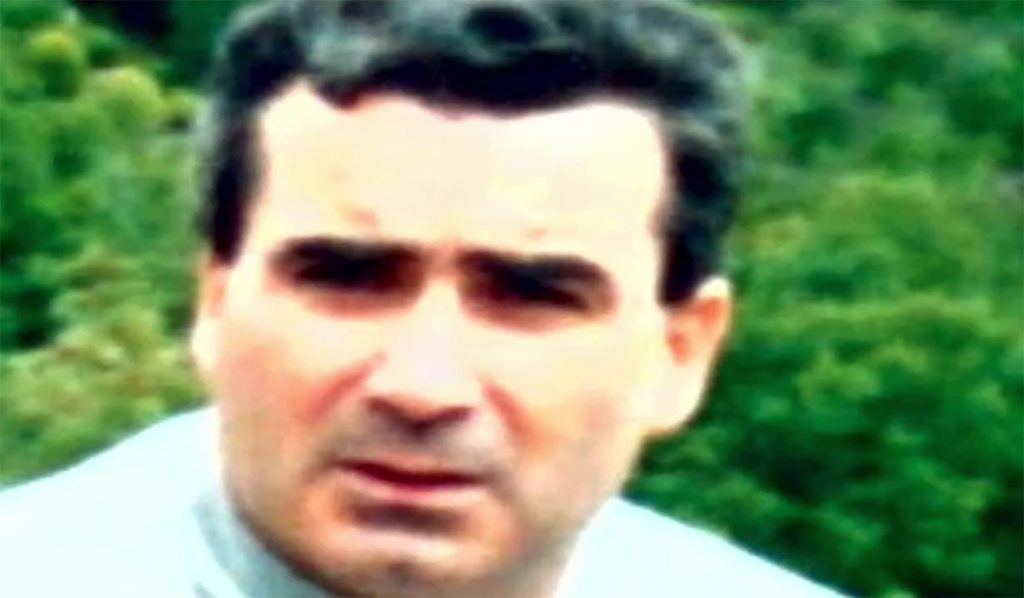NO prosecutions have been secured following a lengthy investigation into the Troubles-era practices of a former double agent known as Stakeknife.
Operation Kenova has been underway at Northern Ireland’s Public Prosecution Service (PPS) since 2016.
It was set up to investigate the practices of the head of the IRA’s internal security unit, Freddie Scappaticci, who was also working for the British, and is believed to have been involved in dozens of murders at the height of the Troubles.
Scappaticci, who died in April 2023, was known to his handlers as Stakeknife.
At its outset Operation Kenova was led by Jon Boutcher, who stepped down when he became PSNI Chief Constable last year.
As well as the activities of Stakeknife, the investigation probed actions taken by current and former police officers, members of the army and MI5, and former members of the IRA.
Over the years the PPS has assessed 28 files of evidence relating to Stakeknife. But they have been unsuccessful in prosecuting anyone related to those files to date.
Today they further confirmed that no prosecutions had been secured in the final stages of their investigation.
 Freddie Scappaticci is believed to have been the Troubles-era double agent Stakeknife
Freddie Scappaticci is believed to have been the Troubles-era double agent Stakeknife“The Public Prosecution Service (PPS) has today taken decisions not to prosecute 12 individuals reported by Operation Kenova in relation to its investigation into an alleged agent known as Stakeknife,” they confirmed today.
“After consideration of a large volume of material and information submitted to the PPS on six files, it has been concluded that there is insufficient evidence to provide a reasonable prospect of conviction for any individual reported in relation to five incidents which happened between 1987 and 1994.”
They added: “This final phase of Operation Kenova decisions involved seven civilians alleged to have been members of the Provisional IRA and five retired soldiers who worked within the Army’s Force Research Unit (FRU).
“Of the five former soldiers reported, three were agent handlers and two held more senior positions of Operations Officer and Commanding Officer.”
The PPS confirmed that the decisions not to prosecute were taken in relation to abductions in 1987 and 1989 where the victims were later released, and the abduction and murder of victims in 1988, 1989 and 1994.
Deputy Director of Public Prosecutions, Michael Agnew, who has had oversight of all PPS work on Operation Kenova, said: “As with all previous phases of Operation Kenova work, decisions relating to these five incidents were considered impartially and wholly independently by an experienced team of senior prosecutors, who were assisted by independent counsel.”
He added: “The challenges encountered in this last phase of decisions, as before, included an absence of important source materials and legal difficulties in attempting to rely upon intelligence records as evidence that could be admitted in criminal proceedings.
“Having carefully considered the extent of the admissible evidence, it was concluded that there was no reasonable prospect of conviction in respect of any of the 12 individuals reported.”
While the PPS has not publicly confirmed the details of the victims concerned in these cases, “all victims and families connected to these five incidents have received an individual written explanation, along with an offer to meet in future to answer any questions they may have”, Mr Agnew said.
Acknowledged the “disappointment” this will bring to the families, Director of Public Prosecutions Stephen Herron said: “I recognise the deep disappointment many victims and families will have at the decisions not to prosecute, and their continuing desire for information and accountability.
“In requesting the criminal investigation into Stakeknife and the conduct of those involved in running him as an agent, my predecessor Barra McGrory KC indicated that he did not take this step lightly but was concerned that serious offences may have been committed.
“It is right, therefore, that a rigorous and thorough examination was undertaken by the Operation Kenova team.
“It was only after all relevant material had been gathered, analysed and understood that the prospects of conviction could be determined.
“Each decision was carefully considered on an individual basis, as we have sought to demonstrate through the public explanations we have issued at each phase of decision-making.
“However, the value of the investigation should not be measured solely in terms of any prosecution decision outcome.”
Mr Herron went on to highlight the victim-centred focus of Operation Kenova.
He added: “Operation Kenova sought to address communication with families in a more considerate and inclusive way and this has been widely welcomed.
“There is much about how they have approached their work that will serve as a model for any future legacy investigations.
“The victims and families have waited a number of years for the conclusion of these decisions.
“I regret that the PPS was not in a position to complete this work more quickly.
“This was in part due to the volume and complexity of the files, but also a result of the limited prosecutorial resources available to PPS for legacy work.”
He added: “I am mindful that an interim Operation Kenova report is to be published by the PSNI next week and is to be followed by individual reports to families who suffered a bereavement.
“I hope that these reports will demonstrate the wider value of Operation Kenova investigations in providing answers to families and also setting out a fuller context and narrative on what are no doubt very challenging and significant issues of understandable public interest.”

